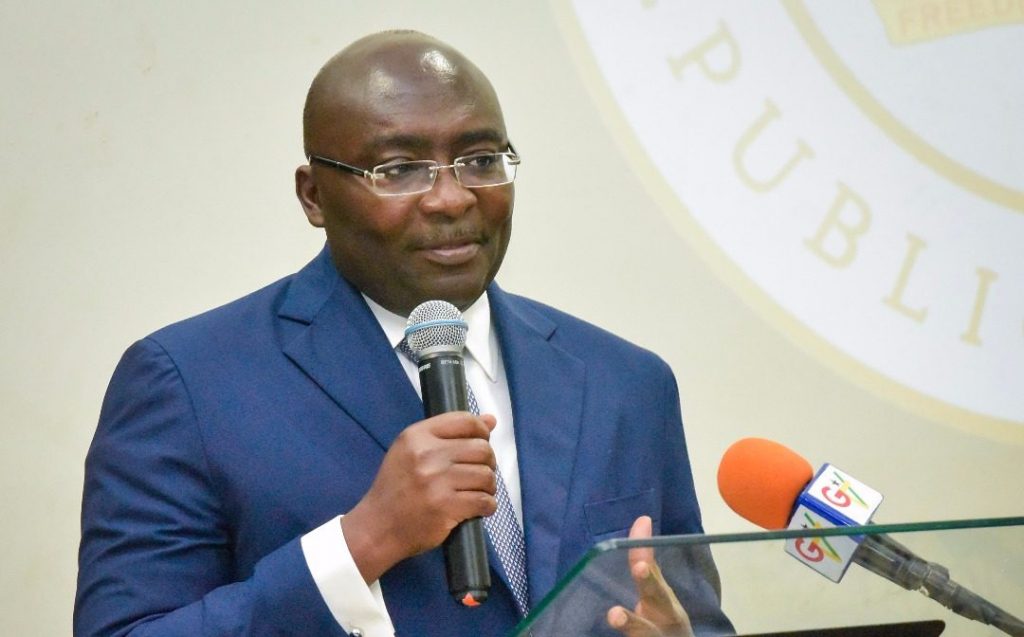The Vice President, Dr Mahamudu Bawumia, has launched the policy and guidelines for the National E-Pharmacy programme as part of government’s ongoing efforts to improve access to and delivery of health care to Ghanaians.
When fully operational in 2022, the E-Pharmacy programme is expected to transform access to pharmaceutical care in the country and make Ghana one of a handful of countries with a national scale e-pharmacy in the world.
Speaking in Accra on Wednesday, the Vice President recalled that a few years ago, at the Annual General Meeting of Pharmacists, he challenged the Pharmacists to explore greater ways of infusing technology into their operations in ways that among others, improves access, efficiency and the availability of medicines across the country, especially in rural and less urban areas.
The challenge, he said, has since been taken up through the leadership of the Pharmacy Council, Pharmaceutical Society and other stakeholders, leading to the creation of the policy and guidelines for the national e-pharmacy.
“Today, we are here to launch a top tier innovation that will transform access to pharmaceutical care in Ghana, complementing the government’s attempt to improve access to and delivery of health care to our more than 30 million population,” he stated.
Government recognizes the gaps in our health infrastructure and is committed to filing as many of the gaps as possible in building our human resources, in our physical infrastructure, and in all the complementary aspects of our health system, Dr Bawumia pledged.
“While tackling inadequate infrastructure in the health sector, it is disheartening to see people spend so much time moving from one pharmacy to the other in search of medication.
“The innovation in improving pharmacy access to our people through E-Pharmacy can be a game changer in safe-guarding the future of our youth and ensuring rational and responsible access to medicines on a scale we have not yet been able to achieve.
“Today, we are adding to the growing list of digitized platforms. E-pharmacy should help us address concerns for the proliferation of fake drugs, because there will be a link to the database of the Food and Drugs Authority to authenticate the approval or otherwise of the medicines on offer; check unlicensed pharmacy operations; reduce disparities in the cost of medicines and tackle some of the major administrative and delivery issues that affect the practice of pharmacy.”
Pharmacist to Patient Ratio
The introduction of this cutting-edge health technology, he emphasized, should help tackle at least 4 critical concerns in the healthcare system: reduce Pharmacist to Patient ratio which is currently five times higher than the ratio recommended by the World Health Organization; improve confidentiality and privacy of patient medical records; minimize wrong self-diagnosis and self medication; and reduce counterfeit and substandard medication.
“At its full implementation, the National E-pharmacy platform will enable the public to obtain genuine medicines from accredited pharmacies.
“The global e-pharmacy market is worth about $81 billion today and it is expected to grow to grow to $244 billion by 2027. With the national E-Pharmacy platform, Ghana will be part of this new pharmaceutical digital economy. The evidence from India also indicates that the national e-pharmacy is likely boost pharmaceutical sales by between 100-200%. It is therefore a win-win for all.
“As we embark on this new path, please do not hesitate to give feedback to Pharmacy Council so that the policy and the system can be improved continuously with the ultimate goal of making it easier and safer for Ghanaians to access medicines in a responsible manner.”







